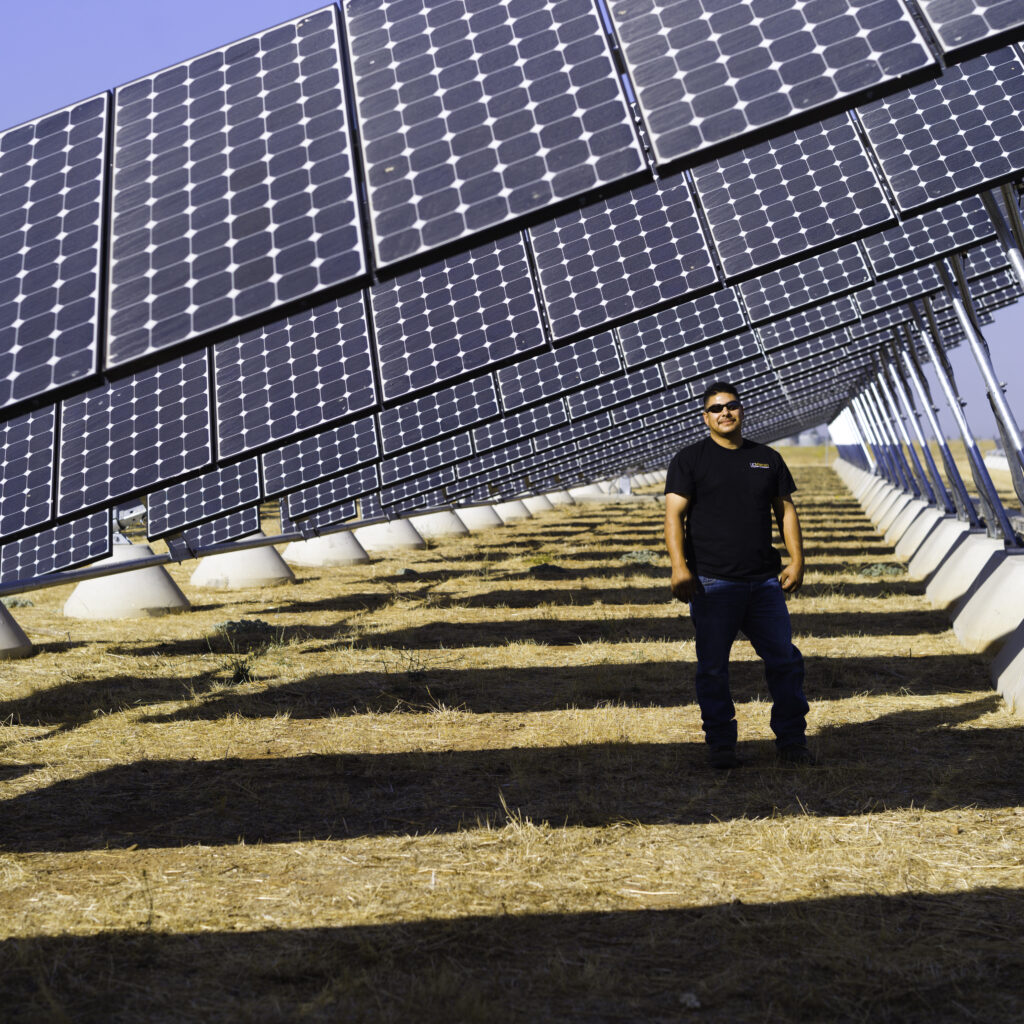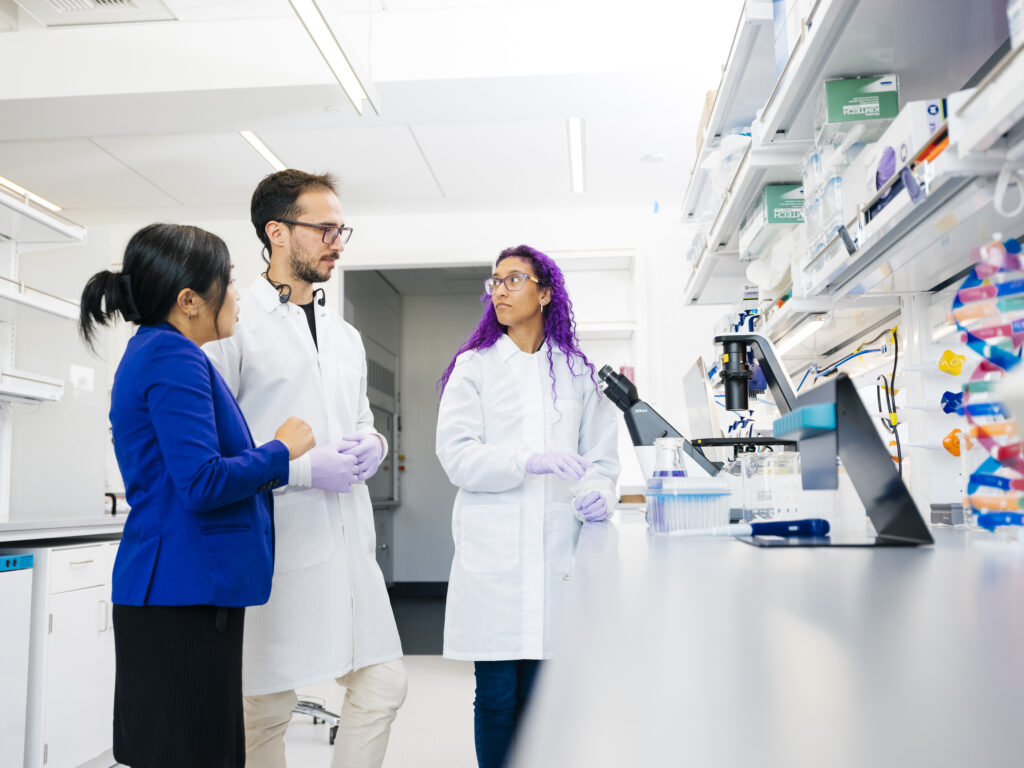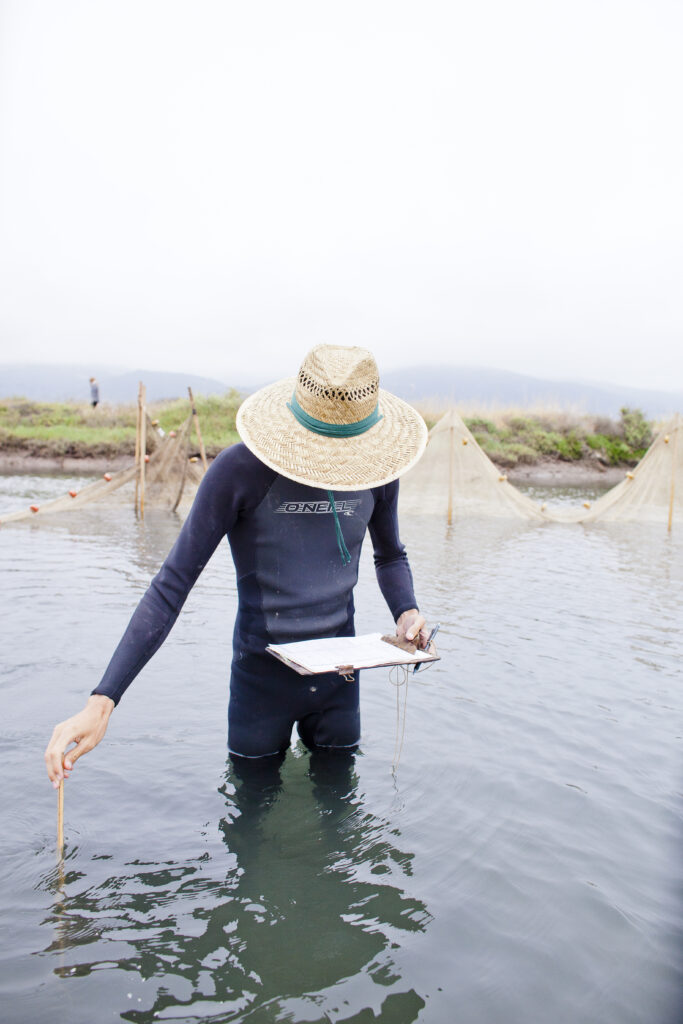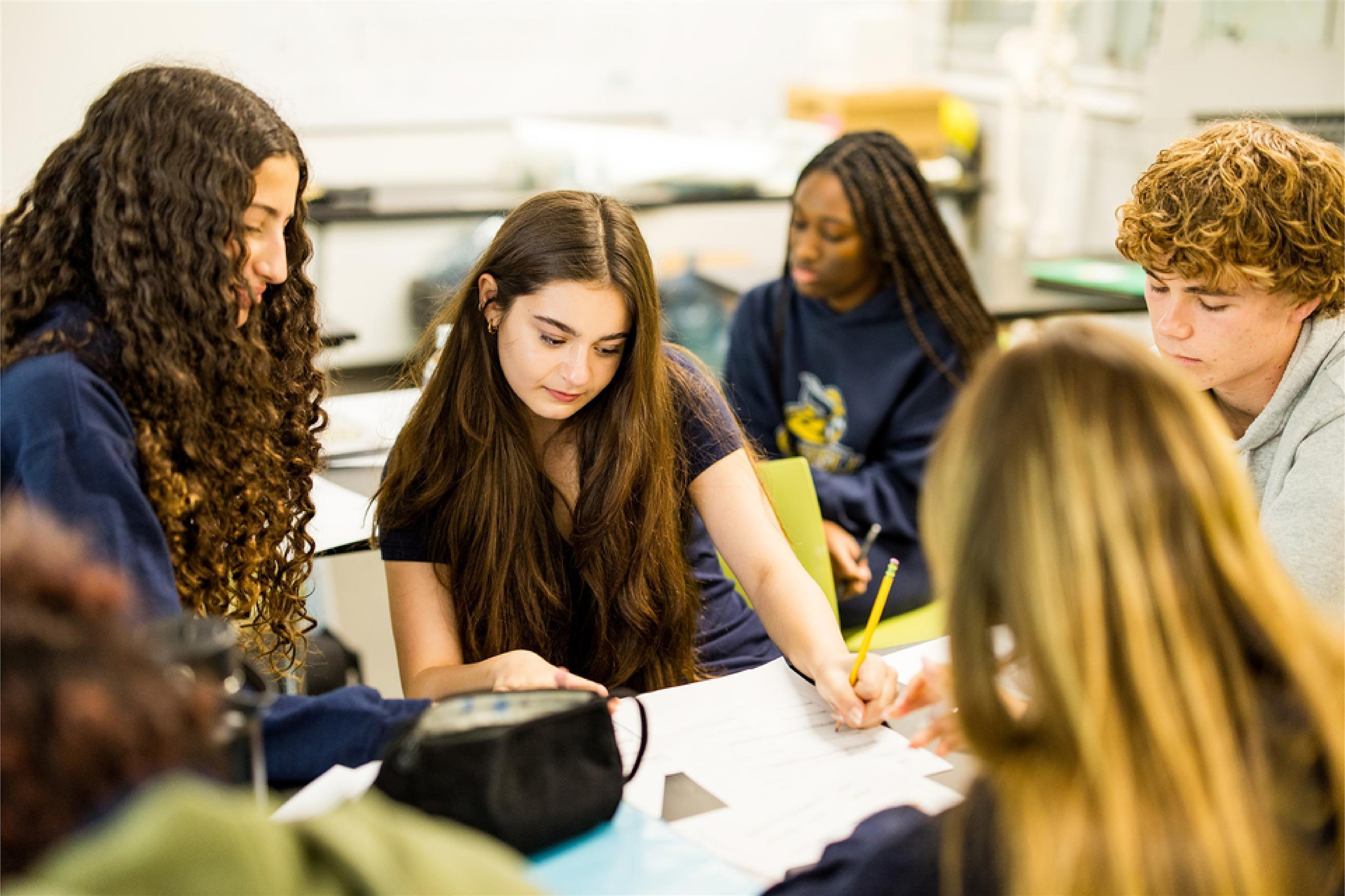
Interested in submitting a proposal for joint research funding?
Eligibility
Proposals must include at least two (2) principal investigators (PIs) from the UC system and collaborators from a partner institution in Mexico. For assistance with identifying collaborators, please consult the Faculty Directory below or contact Alianza MX.
Funding
Proposals can request funding for up to 24 months to support research assistants, supplies and services, conferences and workshops, and travel. Funds cannot be used for PI salaries, student tuition and fees, or to cover department overhead or indirect costs.
Application
Alianza MX organizes joint research funds and opens calls for proposals through specific agreements with Mexican partner institutions. Funding awards from Alianza MX support UC researchers and funding from Mexican partners supports participants from their institutions.
2025-26 CALL FOR PROPOSALS
Autonomous University of Baja California (UABC)
Food Systems, Social Cohesion, Energy Transition
Alianza MX launched a joint call for research proposals with the Autonomous University of Baja California (UABC) in August 2025. Selected projects are eligible for up to USD $25,000 in funding per year over two years from Alianza MX, with matching funds for research at UABC.
Three (3) proposals submitted to the call will be selected for funding support.

2024-25 CALL FOR PROPOSALS
Tecnológico de Monterrey (Tec)
Industrial Transformation, Sustainability, and Prosperity
Alianza MX launched a joint call for research proposals with the Tecnológico de Monterrey (Tec) in June 2025. Selected projects were eligible for up to USD $25,000 in funding per year over two years from Alianza MX, with matching funds for research at Tec.
Three (3) proposals submitted to the call were selected for funding support. Please see below for details and check back here soon for updates on these joint research projects.
This project aims to address a key knowledge-action gap in sustainability, integrating maker education and challenge-based learning into the design of an undergraduate course on “Fast Fashion and Sustainable Futures” at both institutions and using mixed-methods research to examine growth in sustainability knowledge, ethical reasoning, and measurable ecological outcomes.
Principal Investigators:
Mariajulia Martínez-Acosta, Directorate of Sustainability and Climate Action, Tec de Monterrey
Jorge Membrillo-Hernández, Institute for the Future of Education, Tec de Monterrey
Kylie Peppler, School of Education, UC Irvine
Asli Sezen-Barrie, School of Education, UC Irvine
This project aims to produce both freshwater and useful commodities for coastal agricultural operations impacted by seawater intrusion, extracting valuable minerals for agricultural operations, evaluating the use of recovered minerals in local soil conditions in California and Sonora, and determining the techno-economic viability of integrating these approaches in a desalination plant.
Principal Investigators:
Pabel A. Cervantes Avilés, Sustainable Technologies & Civil Engineering, Tec de Monterrey
Casey De Finnda, Civil & Environmental Engineering, UC Davis
Enrique A. López Guajardo, Sustainable Technologies & Civil Engineering, Tec de Monterrey
Anthony (Toby) O’Geen, Land Air & Water Resources, UC Davis
This project aims to pioneer the integration of microfluidic 3D cell imaging with Artificial Intelligence for the study of immunological aging, using pilot studies with human blood samples to test the feasibility of using 3D nuclear shape as a functional biomarker of immunosenescence, potentially enabling early detection of age-associated immune dysfunction.
Principal Investigators:
Anshu Agrawal, School of Medicine, UC Irvine Abstract:
Braulio Cárdenas Benítez, Mechatronics, Tec de Monterrey
Abraham Phillip Lee, School of Engineering, UC Irvine
Víctor Hugo Pérez González, Mechatronics, Tec de Monterrey

2024-25 CALL FOR PROPOSALS
Autonomous University of Baja California (UABC)
Strategic Issues: Climate Change and Renewable Energy Development
Alianza MX launched a joint call for research proposals with the Autonomous University of Baja California (UABC) in September 2024. Selected projects were eligible for up to USD $25,000 in funding per year over two years from Alianza MX, with matching funds for research at UABC.
Three (3) proposals submitted to the call were selected for funding support. Please see below for details and check back here soon for updates on these joint research projects.
This project aims to close critical gaps in understanding of wildfires’ impact on biodiversity, ecosystem resilience, climactic stress, and the challenges faced by remaining and displaced populations. It uses a suite of climate models to study historical fire incidence and emission data, as well as interviews and surveys with residents to calibrate these models. And it advances disaster preparedness by developing a guide to actionable solutions for local communities.
Principal Investigators:
Leila Carvalho, Geography and Earth Research Institute, UC Santa Barbara
David Enrique Flores Jiménez, Instituto de Ingeniería, UABC Mexicali
Amy Frazier, Department of Geography and Earth Research Institute, UC Santa Barbara
Charles Jones, Geography and Earth Research Institute, UC Santa Barbara
David Lopez-Carr, Geography, UC Santa Barbara
Sheila Morales Flores, Facultad de Ciencias Sociales y Políticas, UABC Mexicali
Lya Margarita Nino Contreras, Instituto de Investigaciones Sociales, UABC Mexicali
Néstor Santillán Soto, Instituto de Ingeniería, UABC Mexicali
This project uses AI-driven and interactive approaches to address the spatial dynamics of energy injustices. It uses comparative analysis of urban contexts in Santa Cruz and Ensenada to deepen understanding of energy poverty across socioeconomic, environmental, and geospatial dimensions. And it aims to address the pressing need for equitable interventions to mitigate energy poverty’s impacts on marginalized communities while supporting sustainable urban development.
Principal Investigators:
Elin Carstensdottir, Computational Media, UC Santa Cruz
Seif El Nasr, Computational Media, UC Santa Cruz
Marcos Eduardo González Trevizo, Facultad de Ingeniería, Arquitectura y Diseño, UABC Ensenada
Karen Estrella Martínez Torres, Facultad de Ingeniería, Arquitectura y Diseño, UABC Ensenada
This project focuses on the development of a robust resilience monitoring program across the coastal ecosystems and communities of Baja California. It utilizes underwater and coastal surveys to document critical biophysical variables, biodiversity, and ecosystem health, and integrates social-ecological indicators to provide a holistic resilience assessment.
Principal Investigators:
Mark Carr, Ecology & Evolutionary Biology, UC Santa Cruz
Kyle Cavanaugh, Geography, UC Los Angeles
Luis Malpica Cruz, Instituto de Investigaciones Oceanológicas, UABC Ensenada
José Alberto Zepeda Domínguez, Facultad de Ciencias Marinas, UABC Ensenada

2023-24 CALL FOR PROPOSALS
National Polytechnic Institute (IPN)
Applied Research: Environmental Remediation & Treatment of Metabolic Diseases
Alianza MX launched a joint call for research proposals with the National Polytechnic Institute (IPN) in 2024. Selected projects were eligible for up to USD $37,500 in funding per year over two years from Alianza MX, with matching funds for research at IPN.
Two (2) proposals submitted to the call were selected for funding support. Please see below for details and check back here soon for updates on these joint research projects.
The goal of this project is to determine if the prebiotic effect of a biotherapeutic formulated with phycocyanin and agavins is associated with the prevention of intestinal dysbiosis and the reduction of urea retention solutes as an anti-hypertensive and retarding mechanism of cardiovascular complications in an animal model of chronic kidney disease.
Principal Investigators:
Jack Gilbert, Dept. of Pediatrics, School of Medicine, UC San Diego
Karsten Zengler, Dept. of Pediatrics, School of Medicine, UC San Diego
Edgar Cano Europa, Departamento de Fisiología, Escuela Nacional de Ciencias Biológicas (ENCB)
This proposal seeks to develop a complete gene-sensor system to detect breast cancer molecular markers with enough sensitivity and specificity for potential clinical use, laying a solid foundation for bringing economical molecular biomedicine technology to the first level of health care in low-resource regions of Latin America and the world.
Principal Investigators:
César Antonio González Díaz, Escuela Superior de Medicina, Sección de Estudios de Posgrado e Investigación
Simo A. Mäkiharju, Dept. of Mechanical Engineering, UC Berkeley
Boris Rubinsky, Dept. of Mechanical Engineering, UC Berkeley
Virginia Sánchez Monroy, Escuela Superior de Medicina, Sección de Estudios de Posgrado e Investigación

2023-24 CALL FOR PROPOSALS
Autonomous University of Baja California (UABC)
Strategic Issues: Artificial Intelligence, Migration, and Public Health
Alianza MX launched a joint call for research proposals with the Autonomous University of Baja California (UABC) in October 2023. Proposal submissions are required to include at least two UC PIs and two UABC PIs. Selected projects are eligible for up to USD $25,000 in funding per year over two years from Alianza MX, with matching funds for research at UABC.
Two (2) proposals submitted to the call were selected for funding support. Please see below for details and check back here soon for updates on these joint research projects.
This project applies artificial intelligence tools to: (1) predict shoreline change along small inlets in the Cali-Baja region, and (2) simulate the flow in those estuaries. It uses existing data to train artificial intelligence tools to explore diverse scenarios, including flow and stratification in estuaries, and then train AI techniques to provide flows for different mouth configurations. The outcomes of this project will support science-based decision-making for effective management practices and planning strategies in response to climate change impacts in the binational region.
Principal Investigators:
Fabian Bombardelli, Civil & Environmental Engineering, UC Davis
John L. Largier, Bodega Marine Laboratory / Environmental Science & Policy, UC Davis
Isaac Rodríguez-Padilla, Instituto de Investigaciones Oceanológicas, UABC Ensenada
Amaia Ruiz de Alegría-Arzaburu, Instituto de Investigaciones Oceanológicas, UABC Ensenada
This project seeks to Identify cases of pulmonary tuberculosis using artificial intelligence tools, confirm diagnoses using bacteriological/molecular methods and skin testing. It will then use genome sequencing to analyze TB drug resistance profiles, investigate origins and dispersion patterns, identify and document new mutations, and create a comprehensive database.
Principal Investigators:
Richard S. Garfein, School of Public Health, UC San Diego
Raquel Muñiz Salazar, School of Health Sciences, UABC Ensenada
Timothy Rodwell, Dept. of Medicine, UC San Diego
Luis Jesús Villarreal Gómez, School of Engineering & Technological Sciences, UABC Tijuana

2022-23 CALL FOR PROPOSALS
National Autonomous University of Mexico (UNAM)
Climate Resilience in Urban and Rural Areas
Alianza MX launched a joint call for research proposals with the National Autonomous University of Mexico (UNAM) in February 2023. Proposal submissions are required to include at least three PIs, including at least two from the UC. Selected projects were eligible for up to USD $25,000 in funding per year over two years from Alianza MX, with matching funds for research at UNAM.
Three proposals submitted to the call were selected for funding support. Please see below for details and check back here soon for updates on these joint research projects.
Research questions:
How does sustainable food production using CO2 feedstocks affect metabolic constraints in E. coli?
Can cells be engineered to overcome these limitations and address climate-related problems, including efficient carbon fixation and increased efficiency of food production?
Principal Investigators:
José A. Farias-Rico, Center for Genomic Sciences, UNAM
Neema Jamshidi, Radiological Sciences, UC Los Angeles
José Utrilla-Carreri, Center for Genomic Sciences, UNAM
Daniel C. Zielinski, Systems Biology Research Group, UC San Diego
Research questions:
Can nanomaterials mitigate and arrest the degradation of construction materials used in historic buildings by contaminant gases and bacteria?
Principal Investigators:
Rubén Darío Cadena Nava, Center of Nanoscience & Nanotechnology, UNAM
Luis Cedeño Caero, Department of Chemical Engineering, UNAM
Sergio Fuentes Moyado, Center of Nanoscience & Nanotechnology, UNAM
Ioanna Kakoulli, Dept of Materials Science & Engineering, UCLA
Francisco Zaera, Dept of Chemistry, UCR
Research questions:
How do climate-driven mechanisms of upwelling, nutrient transport, and algal blooms on the northern Yucatan continental shelf affect local fisheries?
Principal Investigators:
Daniele Bianchi, Dept of Atmospheric & Oceanic Sciences, UC Los Angeles
Jorge Alejandro Kurczyn Robledo, Institute of Engineering, UNAM
Nick Nidzieko, Dept of Geography, UC Santa Barbara
Alejandro J. Souza, Center for Research & Advanced Studies (Cinvestav-Mérida)

2022-23 CALL FOR PROPOSALS
Center for Research & Advanced Studies (Cinvestav)
Agriculture, Plant Genomics, Marine Sciences, and Health
Alianza MX launched a joint call for research proposals with the Center for Research and Advanced Studies (Cinvestav) in September 2022. Proposal submissions were required to include at least three PIs, including at least two from either Cinvestav or the UC. Selected projects were eligible for up to USD $50,000 in total funding per year over two years from Alianza MX, with matching funds for research at Cinvestav.
Two proposals submitted to the call were selected for funding support. Please see below for details and check back here soon for updates on these joint
research projects.
Principal Investigators:
R. David Britt, Dept of Chemistry, UC Davis
Glenn L. Millhauser, Dept of Chemistry & Biochemistry, UC Santa Cruz
Liliana Quintanar Vera, Dept of Chemistry and Center for Research in Aging, Cinvestav Zacatenco
José Segovia Vila, Physiology, Dept of Biophysics & Neuroscience, Cinvestav Zacatenco
Principal Investigators:
Maribel Hernandez-Rosales, Dept of Bioinformatics & Complex Systems, Cinvestav Irapuato
Gabriela Olmedo-Álvarez, Dept of Molecular Biology & Microbial Ecology, Cinvestav Irapuato
Adam Olshen, Dept of Epidemiology & Biostatistics, UC San Francisco
Alejandra Rodríguez-Verdugo, Dept of Ecology & Evolutionary Biology, UC Irvine

SPECIAL CALL FOR PROPOSALS
Tecnológico de Monterrey - UC Davis
Seed Funding for Exploratory Research
Alianza MX launched a Special Call in 2023 with Tec de Monterrey and the University of California, Davis (UC Davis) to provide seed funding for exploratory research in the areas of climate change, public health and advancing underserved populations. This initiative built on a bilateral cooperation agreement signed in August 2022 by supporting the development of long-term research collaborations that would in turn be capable of generating research project proposals for funding from other institutional and extramural sources.
Three (3) proposals submitted to the call were selected for funding support. Please see below for details and check back here soon for updates on these exploratory research groups.
Barbara Linke, Dept of Mechanical & Aerospace Engineering, UC Davis
Erick Ramírez-Cedillo, School of Engineering and Sciences, Tecnológico de Monterrey
Miriam Nuño, Dept of Public Health Sciences, UC Davis
Claudia Rangel-Escareño, School of Engineering and Sciences, Tecnológico de Monterrey
Natalia Caporale, Dept of Neurobiology, Physiology & Behavior, UC Davis
Cristina G. Reynaga-Peña, Department of Education, Tecnológico de Monterrey
Faheemah N. Mustafaa, School of Education, UC Davis

SPECIAL CALL FOR PROPOSALS
National Autonomous University of Mexico (UNAM)
Binational Collaborative Projects Addressing COVID-19
Alianza MX launched a Special Call in 2020 with support from UC MEXUS, the UC Berkeley Health Initiative of the Americas, and the National Autonomous University of Mexico (UNAM), through its Coordination of Engagement and Technology Transfer (CVTT) and InnovaUNAM. A second round of the call was launched in 2021 to provide additional funding support for a subset of projects from the first round.
Nineteen (19) proposals submitted to Phase I of the call were selected for funding support, and five (5) projects were selected to receive additional funding during Phase II. Please see below for details.
Phase I of the Special Funding Call received 137 proposals. These included 25 in the biomedical sciences, 32 in health systems, and 59 on the social and economic consequences of the pandemic, while an additional 21 proposals covered multiple topics. Researchers, academics, and students from more than 40 UNAM entities and nine campuses of the University of California participated. A total of 19 projects were selected to each receive USD $5,000 in funding support.
In October 2021, Phase I projects were invited to submit proposals for a second funding stage. From the initial group of 19 projects, 12 submitted proposals for Phase II, with special consideration given to the possibility of licensing technology or establishing new companies that could help secure additional funding. Five projects were selected to each receive USD $25,000 in funding support:
YangQuan Chen, UC Merced
Rafael Ángel Barrio Paredes, UNAM Physics Institute
William H. Fenical, UC San Diego
Rachel Mata Essayag, UNAM Department of Chemistry
Lucia Abascal & Jamie Sepulveda, UC San Francisco
Dania Lima Sánchez, UNAM Department of Biomedical Informatics
Claudia Wehrhahn Cortes & Zehang Richard Li, UC Santa Cruz
Luis Vaca Domínguez, UNAM Institute of Cellular Physiology
Manuela Raffatellu, UC San Diego
Araceli Pérez López, UNAM Biomedical Research Unit (FES Iztacala)

For questions regarding joint research funding proposals, or for more information on projects from a previous call, please contact Alianza MX.



